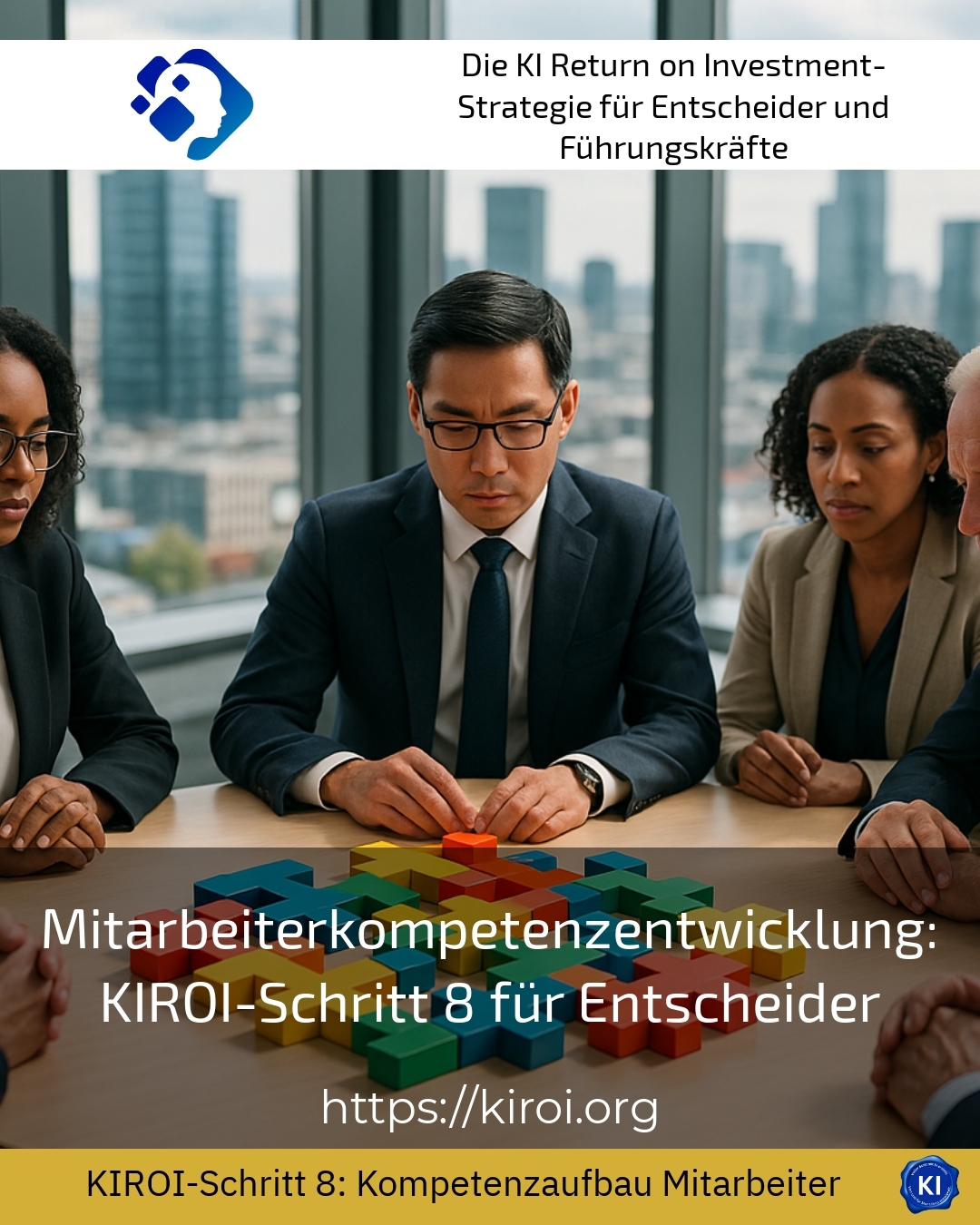Employee skills development is a central building block for sustainable corporate success. Many managers and decision-makers ask themselves how they can organise this process in a targeted and sustainable manner. In the eighth step of the KIROI model in particular, employee skills development is systematically supported. Here, managers receive concrete impulses to promote individual potential and make the organisation fit for the future.
Why employee skills development is indispensable today
Companies are faced with constantly changing requirements. New technologies, changing markets and a dynamic working environment require constant adaptation. Employee skills development helps to master these challenges. It strengthens employees' skills and ensures greater flexibility in the team.
Many clients report that they are primarily looking for support in areas such as project management, communication and technical expertise. Employee skills development offers targeted solutions here. It promotes both technical and methodological skills and prepares employees for future tasks.
Employee skills development in the KIROI model
Structured support in the eighth step
The eighth step of the KIROI model focuses on targeted support for skills development. Companies rely on a combination of different learning formats. On-the-job training, in-house seminars and external workshops complement each other perfectly. Employees learn directly on the job, but also in theoretical settings.
In mechanical engineering, for example, industrial foremen are prepared for management roles through academic courses and practical workshops. In the IT sector, companies use AI-supported platforms to recommend individualised learning paths. In retail, job rotation promotes the development of versatile key competences.
These methods show how diverse employee skills development can be. It adapts to the needs of the industry and the individual strengths of the employees.
Practical examples from the corporate world
A medium-sized technology company introduced a mentoring programme. Experienced colleagues accompanied junior employees in the processing of complex tasks. The employees reported that this support enabled them to significantly improve their methodological skills. They solved tasks more independently and actively contributed to project development.
In the manufacturing industry, companies use AI systems to automatically recognise training needs. Employees receive targeted training suggestions. This creates a personalised learning environment that promotes motivation and knowledge building.
In the financial services sector, AI-supported career planning tools lead to greater transparency. Employees see their development options clearly and stay with the company in the long term.
BEST PRACTICE with one customer (name hidden due to NDA contract) In one technology company, a mentoring programme was combined with on-the-job training. The employees reported that this practical support had noticeably increased their methodological expertise. They were able to work on complex tasks more independently and actively contributed to the culture of innovation. Satisfaction and motivation in the team increased significantly.
Methods and tools for employee skills development
Three levels of skills development
Expertise development takes place on three levels: Practice, coaching and training. At the practical level, employees learn through direct application. Job rotation, project work and on-the-job training are particularly effective here.
At the coaching level, the focus is on mentoring and individual coaching. Here, employees receive targeted feedback and support in overcoming challenges.
Workshops and seminars are offered at the training level. These impart theoretical knowledge and promote practical application.
Active forms of skills development
Companies are focussing on active learning formats. Employees take on new tasks, work on challenging projects and receive regular feedback. In this way, they develop not only professional but also social and methodological skills.
In mechanical engineering, for example, project teams are formed to work on specific tasks. In the IT sector, employees work on interdisciplinary projects to learn new technologies. In retail, employees rotate through various departments to gain a wide range of experience.
Employee competence development as support through transruption coaching
Transruption coaching supports companies in projects relating to employee skills development. It provides support in analysing skills gaps, developing individual learning paths and implementing measures. The result is a sustainable development process that strengthens both employees and the company.
Many clients report that they gain new perspectives through coaching and are able to develop their skills in a targeted manner. Support from experienced coaches helps to overcome challenges and realise development potential.
My analysis
Employee skills development is a decisive factor for the long-term success of companies. It promotes individual potential and strengthens the organisation as a whole. Sustainable development is achieved through targeted support, diverse learning formats and innovative technologies. The practical examples show how varied and effective these measures can be. Decision-makers receive valuable impulses for successfully implementing employee competence development.
Further links from the text above:
Skills development: definition + successful examples
Mastering employee development: focus on KIROI step 8
Successful skills development: 9 tips and 3 levels
Skills development: importance and methods
Employee skills development: KIROI step 8 for decision-makers
For more information and if you have any questions, please contact Contact us or read more blog posts on the topic Artificial intelligence here.















